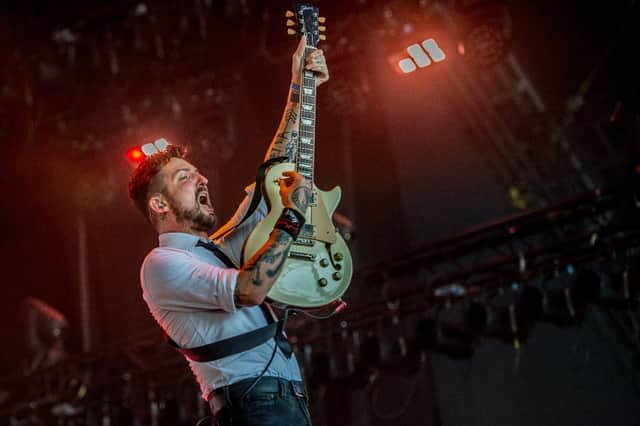Frank Turner performed to 200 people in a 1,250 capacity venue - here’s what gigs could look like when live music returns


Folk singer Frank Turner has taken a lead on the first Government-requested concert testing measures for the safe return of live music.
Turner performed at the Clapham Grand on 28 July, to 200 audience members. The venue’s normal capacity is 1,250 people.
Which safety measures were trialled?
Advertisement
Hide AdAdvertisement
Hide AdTurner warned the audience before the show that it would be a unique concert experience with the new measures in place.
Staggered entrance and exit times, temperature checks and one-way systems were all part of the experience for the attendees, and these measures could now become a regular part of concerts, post-lockdown.
Instead of standing, the crowd was seated at tables, in order to adhere to social distancing rules, and they received table service to prevent any bar queues.
Turner said, “A huge part of performance is the energy exchange with the crowd and as a performer you feed off that energy that is coming back at you.
Advertisement
Hide AdAdvertisement
Hide Ad“You put it out, it comes back and it becomes a kind of virtuous circle and that is what makes a great show.
“It is obviously going to be much harder to slip into that groove for many obvious reasons.”
Revenue ‘through the floor’
Ally Wolf, manager of Clapham Grand, said the number of venue staff required to trial the Government-backed pilot show compared to a normal gig had “dramatically increased.”
“All our operational costs have gone up… and we are now operating at 20 per cent of our actual capacity to actually facilitate the show, so our revenue has just gone through the floor,” he explained.
Advertisement
Hide AdAdvertisement
Hide Ad“This business model of operating like this isn’t feasible for the majority of live music venues, or most venues.”
Wolf added that such concerts would not be feasible for smaller and less versatile venues than the spacious Clapham Grand, which used to be a variety hall. He criticised the government, arguing that it was not successfully “setting a precedent” for the entirety of the live music industry.